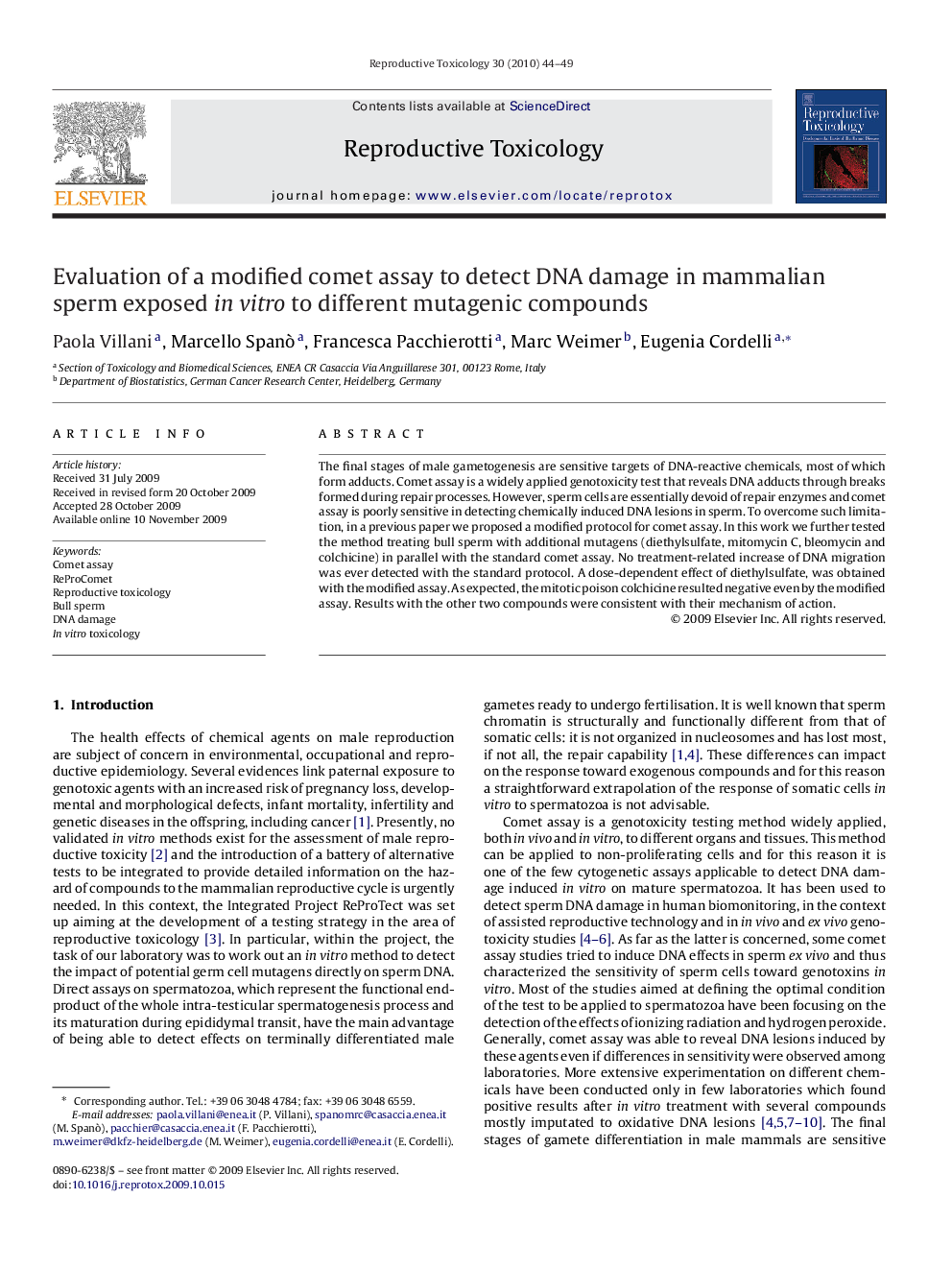| Article ID | Journal | Published Year | Pages | File Type |
|---|---|---|---|---|
| 2594313 | Reproductive Toxicology | 2010 | 6 Pages |
The final stages of male gametogenesis are sensitive targets of DNA-reactive chemicals, most of which form adducts. Comet assay is a widely applied genotoxicity test that reveals DNA adducts through breaks formed during repair processes. However, sperm cells are essentially devoid of repair enzymes and comet assay is poorly sensitive in detecting chemically induced DNA lesions in sperm. To overcome such limitation, in a previous paper we proposed a modified protocol for comet assay. In this work we further tested the method treating bull sperm with additional mutagens (diethylsulfate, mitomycin C, bleomycin and colchicine) in parallel with the standard comet assay. No treatment-related increase of DNA migration was ever detected with the standard protocol. A dose-dependent effect of diethylsulfate, was obtained with the modified assay. As expected, the mitotic poison colchicine resulted negative even by the modified assay. Results with the other two compounds were consistent with their mechanism of action.
